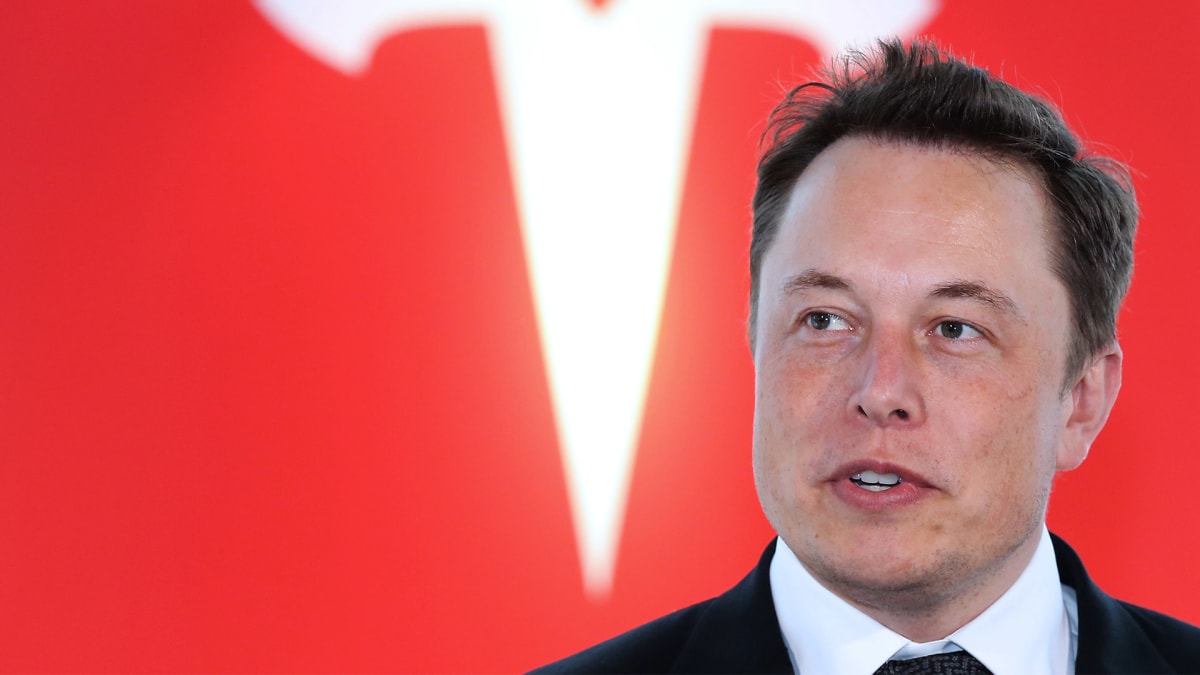
In January 2019 as Tesla (TSLA) was preparing to break ground on its Shanghai gigafactory, CEO Elon Musk tweeted that "affordable cars must be made on same continent as customers."
Tesla has been facing increasing competition in its second largest market and recently slashed the prices in response. And on May 12 the company received some more bad news.
Forget Tesla -- We’re all-in on this EV stock
Chinese regulators have ordered the recall of 1.1 million of the company's vehicles, or virtually almost every car the company has sold in China since 2019.
The recall is actually a software update that will allow changes to braking methods and more warnings about the use of accelerator pedals.
Beginning May 29, regulators said in a statement, some imported Model S, Model X, Model 3 and domestically produced Model 3 and Model Y vehicles with a production date between January 12, 2019 and April 24, 2023 will be recalled.
"The vehicles within the scope of this recall do not allow the driver to choose the energy regenerative braking strategy," regulators said. "At the same time, the driver may not provide enough reminders when the driver depresses the accelerator pedal deeply for a long time."
Complaints About 'Recall'
These factors could increase the risk of a collision, officials said, adding that Tesla plans "to use the vehicle remote upgrade (OTA) technology to push newly developed functions for vehicles within the scope of the recall."
The update will restore the option of switching off regenerative braking and warn drivers when they step hard on the accelerator pedal.
Regenerative braking takes energy from the process of slowing down an electric vehicle and using it to recharge the car's batteries.
Some consumers in China welcomed the technology, also known as one-pedal driving, as it enabled them to bring a vehicle to a complete halt without use of the brake pedal, Reuters reported.
However, others complained it could confuse drivers and increase the risks of misstepping on accelerators. Tesla had disabled the option to switch off the technique on cars produced after 2020.
Tesla CEO Elon Musk has made no secret of his disdain for the term "recall" to describe these updates, famously tweeting that using the word to describe an "over-the-air software update is anachronistic and just flat wrong!”
This latest action sparked several comments on social media, with one person responding to a news outlet's coverage by tweeting, "this is why no one trusts you."
"It is a software update which you conveniently forgot to mention," the person said. "Based on your reasoning, iPhone recalls billions of phones every day."
"The old school recall term confuses people because they are use to it historically being a physical recall of the product," another person tweeted. "This is obvious to anyone even vaguely familiar with Tesla product."
'Update' Minimizes Stigma of Recall
George Ball, a professor at Indiana University who studies product recalls, said an “over the air update is a creative way that Tesla has tried to minimize the stigma of a recall".
“Musk is savvy enough to try to avoid the word recall,” he said. “The problem is, some over the air updates are safety related, and should be termed a recall.”
Ball said that the negative consequences of a recall, such as reduced stock market price, lost customers, problems with regulators, and media attention. are all part of how firms are incented to improve quality.
“When recalls are hidden in software updates, then important safety related problems are also hidden, and the incentive to improve quality is lost,” he said.
A recent study by iSeeCars.com of cars mostly likely to be recalled said Tesla vehicles claimed four of the top five out of spots on the list.
The Tesla Model Y, which came in first, is close to 16 times more likely to be recalled than the average car in the study. The report also addressed the issue of OTA recalls,
While safety recalls that have OTA fixes are more convenient to repair, the report noted that the National Highway Traffic Safety Association’s analysis of the vehicle issue "identified a safety-related defect that violates its vehicle safety standards and needs to be addressed."
Last month Tesla posted softer-than-expected first quarter deliveries, with production outpacing demand despite a series of price cuts put in place earlier this year.
Production rose 44.5% to 440,808 vehicles as supply chain disruptions and Covid-related closures at the Shanghai factory faded.







